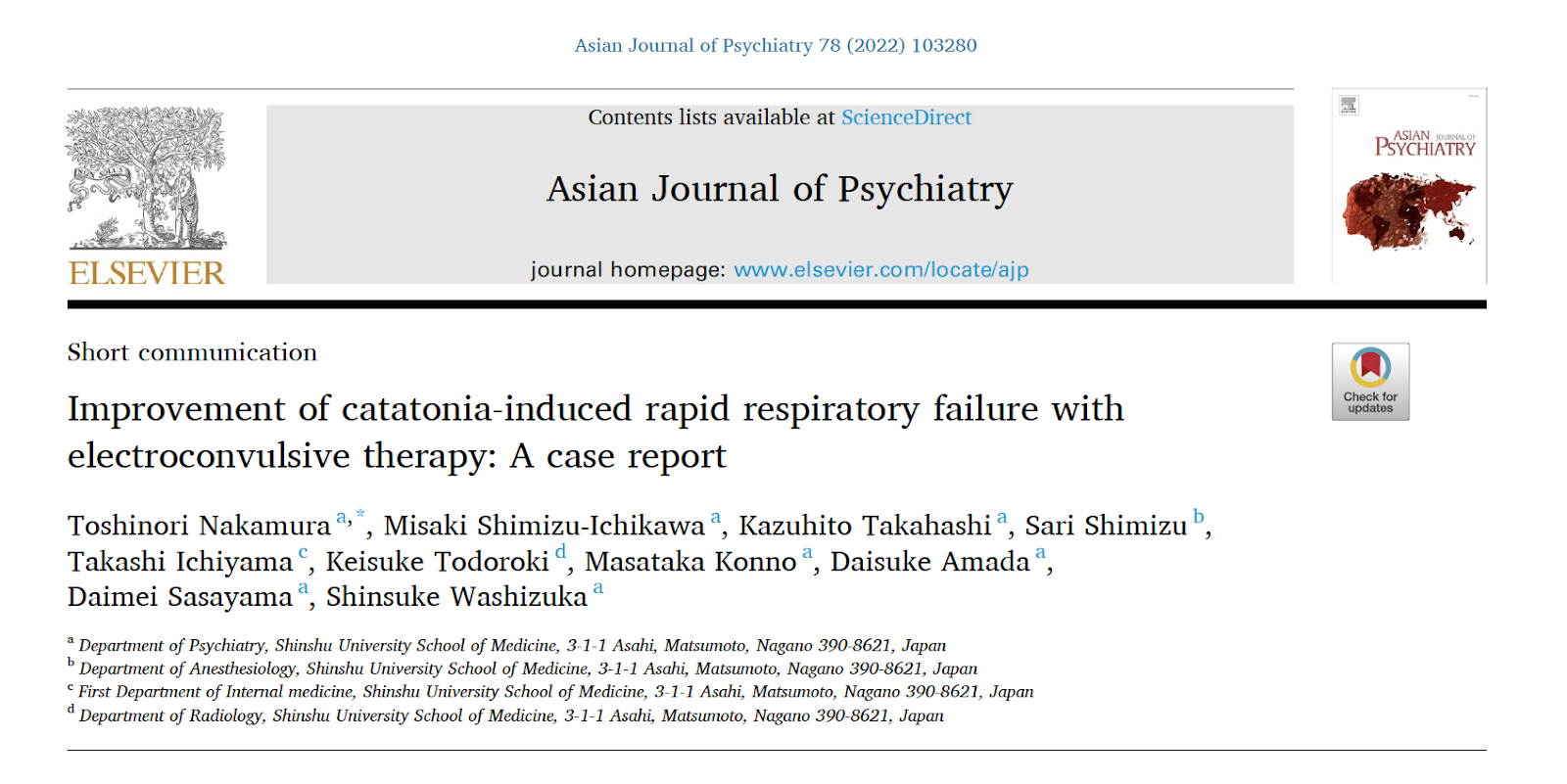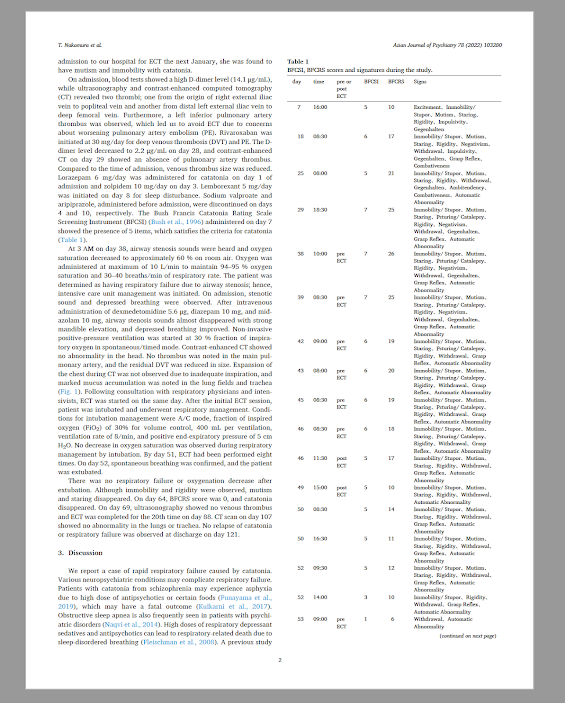ECT in the ICU For Catatonia With Respiratory Complications: Case Report From Japan
Improvement of catatonia-induced rapid respiratory failure with electroconvulsive therapy: A case report.
Asian J Psychiatr. 2022 Oct 6;78:103280. doi: 10.1016/j.ajp.2022.103280. Online ahead of print.PMID: 36228426

We encountered a case of sudden respiratory failure during treatment of catatonia that required intensive care. Electroconvulsive therapy (ECT) was administered in the intensive care unit while the patient was under systemic control. The catatonia symptom was relieved, and respiratory failure improved. Although a proximal venous thrombus was observed, anticoagulation therapy was continued during ECT, and the patient was successfully treated without causing a pulmonary embolism. It is crucial to monitor the patient's physical and psychological symptoms because respiratory status may deteriorate rapidly in a catatonic state.
Keywords: Airway stenosis; Catatonia; Deep venous thrombosis; Electroconvulsive therapy; Inadequate inspiration; Respiratory failure.
The article is here.
And here:
This is a very uneven case report with obsessional details about catatonic symptoms and no details about the ECT. The main point is that the patient did well with ECT, so that is good. The presumed direct connection between the respiratory problems and catatonia is not fully convincing; the DVT issues are a further complication.
While the report is poor, it seems the clinical care was excellent; kudos to this care team for the initiation of ECT in the ICU setting.






Comments
Post a Comment